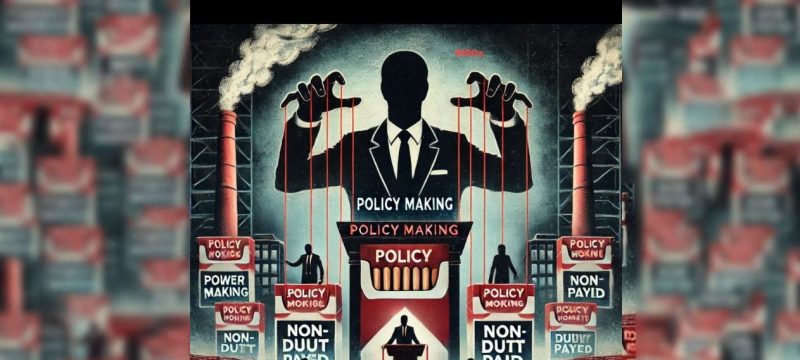Islamabad — In a detailed conversation with media representatives, Ameen Virk, Chairman of Fair Trade in Tobacco (FTT), rebutted the recent remarks by the World Health Organization’s Country Representative in Pakistan concerning the country’s tobacco control policies and taxation framework. Virk questioned both the factual basis and the intention behind the statements, asserting that they represent a one-sided narrative that ignores critical market realities and actively undermines Pakistan’s legal, tax-paying tobacco sector.
Virk began by challenging the staggering figures quoted by the WHO official. “We must ask: What is the basis for the repeated claim that 164,000 people die every year in Pakistan due to tobacco-related causes and that our economy suffers Rs. 700 billion in losses annually? Where is the data? Where is the audit trail? These are prepositioned talking points recycled through a small network of local partners funded by banned international NGOs,” he said.
He went on to note that while the representative of an international organization highlighted the increase in tax revenue in 2023 as a success story, he failed to mention that this came at a significant cost to the legal industry, which is now shrinking due to unaddressed illegal trade. “The WHO official praises the increase in revenue following the 2023 tax hike but conveniently ignores the fact that the share of illegal cigarettes in Pakistan’s market has risen to over 56%. How can any serious policy discussion ignore this fact?” Virk asked.
According to data collected from enforcement reports and market surveys, of the 413 cigarette brands currently sold in Pakistan, a staggering 394 are non-compliant with the Federal Board of Revenue’s (FBR) Track and Trace System. Moreover, 286 brands violate the mandatory graphical health warning laws the Ministry of National Health Services enforced. Most concerning is that over 40 local manufacturers continue operating without paying federal excise or sales tax. “When you fail to distinguish between the legal and illegal segments of the market, your entire argument becomes irrelevant to Pakistan’s ground realities,” Virk emphasized.
The FTT Chairman also cautioned against the NGOs repeated insistence on higher taxation as a blanket solution. “Excessive taxation in an environment with weak enforcement does not curb consumption; it drives consumers to cheaper, illegal products. It hurts the legal sector, fuels tax evasion, and rewards criminal networks,” he said.
Virk was particularly critical of the apparent alignment between the INGOs narrative and the interests of a local ecosystem of NGOs, many of which allegedly operate on funds from banned foreign organizations. “These NGOs, operating under a cloak of ‘public health activism,’ never speak about more than 40 companies that evade tax, violate every regulation, and flood the market with unregulated products. Their silence is not just suspicious but strategic,” Virk stated.
He also criticized the international donor organization for disregarding the broader socio-economic context. “Pakistan’s legal tobacco industry contributed nearly Rs. 300 billion in taxes last year. It supports thousands of jobs, from farming to logistics to retail. Ignoring this contribution while demonizing the entire sector is not public health advocacy; it is sabotage,” he said.
In his concluding remarks, Virk called on the Government of Pakistan, the Federal Board of Revenue, and the Ministry of Interior to scrutinize the origin and intent of such narratives. “Our policies must be built on local realities, audited data, and sovereign decision-making. We welcome regulation, but we reject externally driven agendas disguised as health policy,” he said.
Virk reiterated his support for evidence-based policymaking, a fair tax regime, and strict action against all illegal cigarette manufacturers. “However, the narrative that penalizes only the compliant sector while enabling the illegal market must be rejected outright,” he said.









